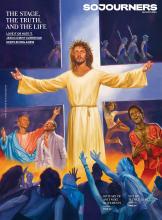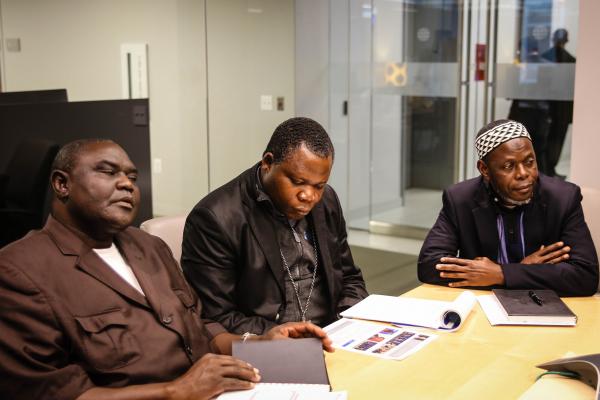“Since you are believers, I will speak to you as believers,” the archbishop told us, before explaining how he and his two colleagues — a Muslim imam and an evangelical pastor — have drawn on their faith in order to work for peace and reconciliation in Central African Republic (CAR). “If we want our hearts to be … like the heart of God, we need to learn to love other people, we need to learn to live in peace with them and to take them in. This is the only way we will be true children of God."
When the Seleka, a loose coalition of predominantly Muslim rebels, overturned CAR’s government in 2013, the anti-balaka, a loose coalition of predominantly Christian fighters, began to retaliate. At face value, the conflict seemed to be a religious one, event though Christians and Muslims in CAR have co-existed in relative peace for much of its 50-year history. Yet the twin forces of political instability and lack of economic opportunity have created an environment in which militias and rebel groups can prey upon young, unemployed men who see no hope for a future unless they fight for it.
Despite the chaos and conflict that have raged throughout CAR since March 2013, Dieudonné Nzapalainga, the Catholic Archbishop of Bangui, Imam Oumar Kobine Layama, President of the Central African Islamic Community, and Rev. Nicolas Guérékoyame-Gbangou, President of the Evangelical Alliance of the Central African Republic, have united to teach their flocks what it means to be “true children of God.” As news reports have focused on the violence and displacement of some 800,000 Central African Republicans, these three faith leaders have instead focused more deeply on what their faith traditions tell them is true. And that faith has propelled them to seek peace and reconciliation in their war-torn country.
For their work, the three leaders were jointly listed among TIME’s 100 Most Influential People in April and received an award from Search for Common Ground last week.
“When politicians wanted to use the religious fibers to divide the people, whether to maintain power or to conquer it, we stood up as if we were a single man to say ‘non’ to this war and ‘yes’ to peace,” the archbishop said in his acceptance speech.
Read the Full Article

